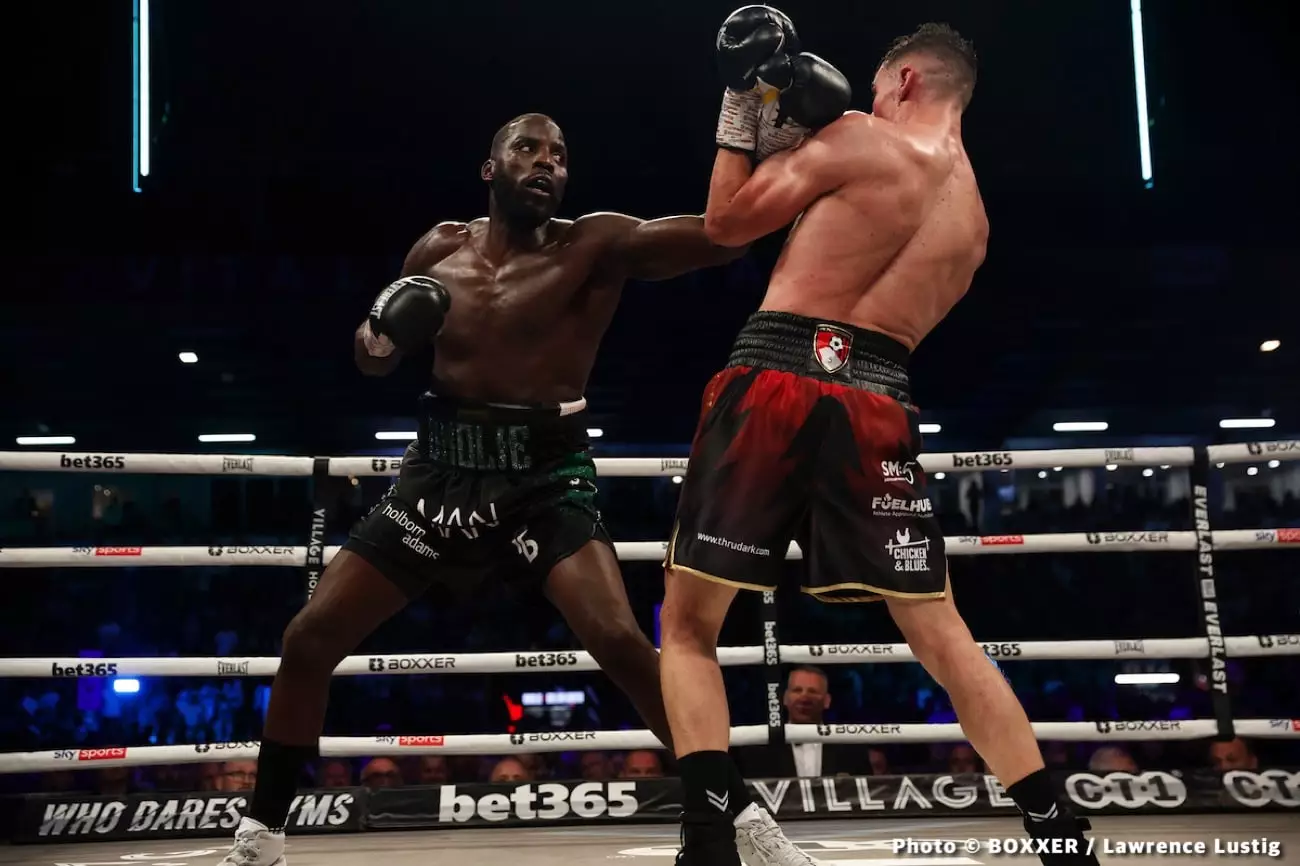The boxing world is buzzing with excitement following Lawrence Okolie’s decision to vacate the WBC bridgerweight title and shift his focus to the heavyweight division. Nicknamed “The Sauce,” Okolie’s move marks the beginning of a significant new chapter in his career. The fighter’s latest announcements have provoked both admiration and skepticism, and it is essential to dissect the implications of this transition for his future as a heavyweight contender.
Having achieved considerable success at the cruiserweight level, where he captured the WBC bridgerweight belt after a stunning knockout victory over Lukasz Rozanski, Okolie has now set his sights on the heavyweights. At 31 years old and with a noteworthy record of 20 wins and only one loss, the Londoner has established himself as a formidable force in boxing. However, the decision to relinquish the bridgerweight title is not just an ordinary career move; it signals Okolie’s ambition to compete among the elite in boxing’s most lucrative category.
With fighters often chasing the spotlight and financial rewards that come with heavyweight bouts, Okolie’s choice to vacate the belt aligns with a broader trend where successful cruiserweights — like Evander Holyfield and David Haye — have sought to etch their names among the heavyweights. Moreover, the heavyweight division boasts some of the biggest names in boxing today, including Oleksandr Usyk, Tyson Fury, and Anthony Joshua, and it is here that Okolie hopes to leave his mark.
At 6’5″ with an impressive 82-inch reach, Okolie possesses the physical attributes typically associated with heavyweight champions. His dimensions will likely grant him a natural advantage in terms of height and reach against current heavyweight king Oleksandr Usyk, who stands at 6’3″. Nonetheless, transitioning to a heavier weight class brings its challenges as well. The heavyweight division does not just focus on physical attributes; it emphasizes experience, resilience, and the ability to withstand punishing blows.
While Okolie shines as a knockout artist, evidenced by his 15 KOs in 20 professional fights, his performances have been inconsistent. For instance, his electrifying win over Rozanski showcased his power, yet his less memorable bout against David Light raised questions about his ability to stay engaged across longer fights. This inconsistency could prove problematic against more experienced heavyweights who can capitalize on slower starts or defensive lapses.
As he embarks on his heavyweight voyage, Okolie recognizes the relevance of experience and preparation. He has sparred with heavyweight legends like Anthony Joshua and Tyson Fury, and the knowledge gained from these encounters would undoubtedly enrich his training regimen. Moreover, Okolie has expressed his eagerness to face Usyk, highlighting his ambition to challenge himself against the best.
In the world of boxing, transitioning weight classes can either invigorate a career or lead to downturns. As Okolie aims for a place in the top five of the heavyweight rankings, he must navigate this shift cautiously yet assertively. The pressures of expectation will be immense; not only does he carry the burden of moving up, but he also seeks to join an elite group of fighters who have successfully claimed titles across weight classes.
While fans await news of Okolie’s heavyweight debut, one thing remains clear: this decision is not merely about chasing wealth but about testing his limits and showcasing his skills in front of a grander audience. For every challenge he faces, there lie ample opportunities to prove his critics wrong and solidify his legacy in a sport where success is often measured in titles. As Lawrence Okolie continues his journey, boxing aficionados will be watching closely to see if “The Sauce” can indeed add his name to the historical annals of boxing’s heavyweight elite.

